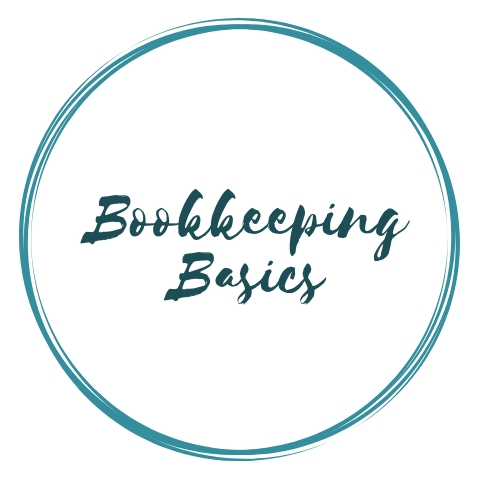- Home
- Bookkeeping Articles
- Bookkeeping Company
Bookkeeping Company
4 Steps To Help Businesses
Avoid Employee Theft
For a bookkeeping company or any other business, employee theft is a problem that could impact anyone. Bookkeeping is essential to mitigate the risk.
Most employees are honest and loyal to their
employer. Unfortunately, a small percentage of employees embezzle money. While
it is unlikely that your employees are stealing, you should still setup
internal controls as a precaution.
Follow the tips outlined in the bookkeeping article below and consult with your bookkeeper and CPA to develop the necessary safeguards.
Bookkeeping Company - Internal Controls
A study conducted by professors Bonnie Fisher and Johanna W Looye at the University of Cincinnati reveals that around 16% of businesses fall victim to employee theft. While the prevalence of such incidents may not be high, business owners must not become complacent. Even rare instances of employee theft can have severe financial and legal repercussions for businesses.
To safeguard against employee payroll theft, every business should establish robust internal controls that can identify and prevent such fraudulent activities. An exemplary case that highlights the importance of these controls is that of the Boys & Girls Clubs of Sonoma Valley.
By implementing stringent procedures, they were able to detect an employee embezzlement scheme before significant losses could cripple the organization. These controls were put in place following a previous incident in 1998, where an employee had stolen nearly $90,000.
It is essential for other business owners in Petaluma and Sonoma County to learn from this case and adapt similar controls within their own organizations. Employee theft can occur anywhere, and being proactive is key to preventing such incidents. The following steps have proven to be highly effective deterrents against employee theft:
- Segregation of Duties: Separate key financial tasks among multiple employees to ensure that no single individual has control over all aspects of financial transactions.
- Regular Audits: Conduct regular internal audits to review financial records, transactions, and discrepancies, ensuring any irregularities are promptly identified and investigated.
- Strong Financial Policies: Develop and enforce clear financial policies and procedures, including approval processes, expense reporting guidelines, and cash handling protocols.
- Limited Access: Restrict access to sensitive financial systems, documents, and assets to authorized personnel only, utilizing secure passwords and access controls.
- Whistleblower Protection: Establish a confidential reporting mechanism for employees to report suspicious activities without fear of retaliation.
By implementing these internal controls, businesses can significantly reduce the risk of employee theft and detect fraudulent activities at an early stage. Furthermore, fostering a culture of ethics and integrity within the organization is crucial in promoting transparency and discouraging dishonest behavior.
Don't wait for an incident to occur before taking action. Proactively implement these preventive measures to protect your business from the detrimental effects of employee theft. Remember, investing in robust internal controls is an investment in the long-term financial health and stability of your organization.
Bookkeeping Company - 4 Step Implementation
You should consult with your bookkeeper and accountant to setup the internal controls needed to identify and prevent employee theft. Here are some of the ways that they can help.
1. Provide Income Tax Resolution Help
Tax resolution such as help with conducting audits is the best way to identify discrepancies in cash and inventory.
Announcing planned audits appears to be one of the most effective ways to prevent fraud. A study from Richard Daft from Vanderbilt University found that employees are less likely to commit theft if they are aware of bookkeeping audits and other internal controls.
However, it is also important to have your bookkeeper conduct unannounced audits as well. Employees may be less likely to try to hide theft if they aren’t expecting an audit.
2. Use External Auditors and Bookkeeping Agencies
A recent study from the National Federation of Independent Business (NFIB) found that independent small business tax services are 15 times less likely to steal from a business than employees.
They also don’t have an incentive to cover for fellow employees that may be engaging in fraud. The NFIB recommends hiring independent bookkeeping services to conduct audits.
3. Owners Should Be Highly Involved in Financial Process
Mike Rhodes, a partner in a major New York accounting firm, recently emphasized the importance of small business owners being involved in the accounting process. Rhodes said that that many business owners prefer to focus on more exciting aspects of the business, such as attracting new customers.
However, Rhodes experiences show that owners that review profit and loss statements are much more likely to identify fraud before it becomes a serious concern.
4. Compare Inventory Levels to Bookkeeping Records
Maintaining accurate financial records is essential to prevent employee shrinkage. However, sound bookkeeping alone isn’t enough to identify potential fraud. You also need to physically count inventory to see if it matches the figures listed in your balance sheet.
If inventory levels are noticeably lower than the value listed on the bookkeeping books, then the goods are either being stolen or waste isn’t being properly reported. Rhodes recommends conducting these audits at least once a year.
More Bookkeeping Articles
- Bookkeeping Company
- Bookkeeping Office Productivity
- Bookkeeping Salaries
- Bookkeeping Tips
- Business Structure
- Deductible Expenses
- Economic Stimulus Payments
- Estimated Tax Payment
- Hobby Loss Rule
- Home Based Bookkeeping Business
- Reduce Office Clutter
- Standard Mileage Rate
- Starting Own Business
- Tax Relief
Bookkeeping Supplies
- Basic Bookkeeping For Dummies
- Bookkeeping Books
- Bookkeeping Business Software
- Bookkeeping Deals
- Bookkeeping Ledger
- Bookkeeping Software
- Bookkeeping Supplies
- Bookkeeping Tutorials
- Cell Phones
- Computers
- Electronic Supplies
- Finance Magazines
- Office Equipment
- Office Furniture
- Office Supplies
- Quickbooks Accounting Software
Please subscribe to my monthly newsletter, Bookkeeping Basics E-zine. It tells you every month about the new information that I have added, including some great tips and advice from myself and other Bookkeeping Basics readers.
Like Bookkeeping-Basics.net?
- Home
- Bookkeeping Articles
- Bookkeeping Company

















New! Comments
Have your say about what you just read! Leave me a comment in the box below.